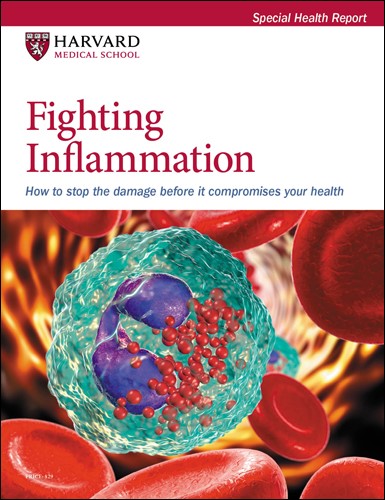Treating inflammation protects the heart
News briefs
People with coronary artery disease or strong risk factors for developing it are often treated with statin drugs. Statins were developed to treat high levels of LDL (bad) cholesterol, because such high levels increase the risk of coronary artery disease. Studies convincingly showed that statins do indeed reduce both cholesterol and the risk of coronary artery disease, as expected. However, a large Harvard study published in 2008 found that statins also lowered the risk even in people with normal LDL levels. Why? Many doctors speculated that the reason might be that statins also reduce inflammation, another contributor to heart attacks and stroke. A new Harvard study, published online August 27, 2017, by The New England Journal of Medicine used a novel medication called canakinumab, which attacks inflammation but does not lower LDL cholesterol. The study involved over 10,000 people who had suffered a heart attack and whose blood showed a modest level of inflammation. The inflammation-fighting medicine lowered the rates of heart attacks, strokes, and death from heart disease. This study supports the theory that the beneficial effects of statins may result from their ability to both lower cholesterol and tamp down inflammation. It also will lead to further study of this new drug as well as other treatments for inflammation.
Disclaimer:
As a service to our readers, Harvard Health Publishing provides access to our library of archived content. Please note the date of last review or update on all articles.
No content on this site, regardless of date, should ever be used as a substitute for direct medical advice from your doctor or other qualified clinician.
















